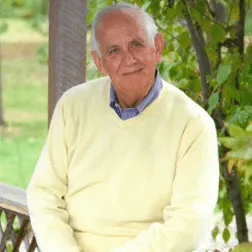Estate Planning Lawyers Indianapolis, IN
Providing High-Quality Estate Planning Services And peace Of Mind
You must think about the future of your loved ones after you pass away, even though estate planning can be a difficult thing to approach — and it’s easy to put it off. Setting up sound wills, trusts and other estate planning documents helps people protect their family members. Finalizing your estate planning strategies can give you peace of mind, and the helpful attorneys at Ward & Ward Personal Injury Lawyers in Indianapolis can guide you through an ever-changing plethora of State and Federal laws.
Planning for the future of your estate
Regardless of your current state of health, it’s never too early to begin the estate planning process so you can ensure the protection of your loved ones if the worst should occur. To start this process, it is important to understand the various elements of a good estate plan and how they connect with each other.An estate plan arranges for the transfer of your assets in anticipation of death to retain maximum wealth for beneficiaries. It includes total property, real and personal, owned by an individual prior to distribution through a trust or will. And although trusts and wills are important elements of any estate plan, there are key differences between them, which may influence how you choose to distribute your assets and property.
Avoid complications by drafting a will
Essentially, a will is a written, signed and attested document that dictates the management of your estate after you pass away. It also names an executor who manages the distribution of your assets according to the wishes you outline. You can specify which items you would like to go to particular beneficiaries, such as vehicles, real estate, art, jewelry and intellectual property. This is especially important if these items have sentimental value or are family heirlooms.Wills also make things easier if you’re in a relationship with someone to whom you are not married. You can leave your partner assets or property through your will, which saves that person the trouble of arguing for these items if you pass away.
Setting up a trust for beneficiaries
One of the key benefits of a trust is that it’s not subject to the probate process, which can save your beneficiaries time and money. There are several different types of trusts the team at Ward & Ward Personal Injury Lawyers can draft, including:
Land trust
A trustee holds ownership of land for the benefit of an individual or entity. This is typically used for large landholdings.
Fixed trust
The trustee has limited discretion in the management of assets. This is also known as a nondiscretionary trust.
Pot trust
The funds are spent at the discretion of the trustee, rather than dividing assets evenly. This type of fund may be set up for children
What does a will cover?
No matter the size of a person’s financial estate, an Indiana resident should always have estate planning Indiana lawyers draft a will for them. A will gives a person’s heirs the legal right to the property and/or assets he or she wants their family or friends to inherit.
Real estate (also called ‘real property’),and personal property (including vehicles) are all items that a will can cover. In addition, a person can also stipulate instructions for funeral and disposition of the body. Most importantly, particularly to parents of minors, a last will and testament will name the person or persons to serve as legal guardians for their children.
Other assets, such as a small business, may also be stipulated in the will.
What happens if a person dies without a will?
If a person dies without a will, then the probate court will decide what happens to all the decedent’s property and assets, as well as guardianship for their children. It is important to keep in mind that how the court distributes your estate and who they appoint a guardian may not be what you would have stipulated in your will.
No Will
When a person dies without a will, the legal process of estate distribution is called intestate succession. The court will make all the decisions regarding the estate in accordance with state intestate laws. Just as needs to be done if there is a will, all of the debts the decedent had are paid first, before the rest of the estate is distributed to the heirs. This is a process estate planning lawyers Indianapolis, IN can help oversee. Although each state has their own rules, generally, the order in which the court will divide the estate up is as follows:
Married With Children
If the person was married and had children, their spouse will receive half of the estate and the other half is divided between the children.
Married With Children and Spouse Deceased
If the person was married and had children but their spouse is also deceased, then the entire estate is divided among the children.
Married Without Children
If the person was married, but had no children, then their spouse will inherit the entire estate.
Not Married And Without Children
If the person did not marry and did not produce children, the court will award the estate in this order
- The decedent’s parents
- The decedent’s siblings
- The decedent’s nieces and nephews
- The decedent’s grandparents
- The decedent’s aunts and uncles
- The decedent’s cousins
No Known Family
If the decedent had no known family, the estate will go to the county that the person lived in. This includes real estate and large assets, such as vehicles and boats. Any personal property the decedent had will usually go to the state.
Let an Estate Planning Attorney Help
Don’t let the courts decide how to divide your estate. Contact estate planning lawyers Indianapolis, IN from Ward & Ward Personal Injury Lawyers today to find out how easy this process can be.
Get the estate planning process started in Indianapolis today
If you have questions about proper estate planning, consult with an experienced lawyer. Call Ward & Ward Personal Injury Lawyers today at 317-639-9501 or contact us online. We can meet with you at your convenience and are ready to provide comprehensive estate planning services to you and your family.
Estate Planning FAQs
If you want to provide lasting care for your estate and your loved ones, the Indianapolis IN estate planning lawyers from Ward & Ward Personal Injury Lawyers are here to help.
Planning for the future is essential, and estate planning is a crucial aspect of ensuring that your wishes are honored and your loved ones are taken care of. As you consider this important step, you may have questions. Here are some of the most common inquiries and their answers.
What Exactly Does Estate Planning Involve?
Estate planning is the process of preparing and organizing the management and distribution of an individual’s assets after their passing. This process involves creating legal documents such as wills, trusts, powers of attorney, and health care directives. It’s not just about distributing assets but also about ensuring your wishes regarding medical care and appointing guardians for minor children are documented. By working with estate planning specialists, you can ensure your estate plan is comprehensive and legally binding.
Why Is It Necessary To Have An Estate Plan?
Having an estate plan ensures that your assets are distributed according to your wishes and not solely based on state law. Without an estate plan, your estate might be subjected to probate, a time-consuming and potentially costly court process. Moreover, a proper estate plan can help minimize taxes, ensure the continuity of family-owned businesses, and protect the inheritance of minors or those with special needs. It provides peace of mind knowing that your loved ones will be taken care of in the manner you intended.
I’m Relatively Young And Don’t Have Significant Assets. Why Do I Need Estate Planning?
Estate planning isn’t just for the wealthy or elderly. Even if you have modest assets, you’ll want to have a say in who inherits them. Additionally, estate planning encompasses more than just asset distribution. It includes directives about your health care wishes, assigning guardianship for minor children, or ensuring the care of beloved pets. Engaging with Indianapolis estate planning lawyers early on ensures you’re prepared for the unforeseen and that your wishes, regardless of your estate’s size, are honored.
Why Shouldn’t I Use An Online Template For My Will Or Estate Plan?
While online platforms can provide basic templates, they might not capture the nuances of your unique situation or the specificities of state law. A one-size-fits-all approach often overlooks individual needs and may not stand up in court if challenged. By consulting with estate planning lawyers, you’re getting personalized advice and documents tailored to your needs, ensuring they’re both comprehensive and legally sound.
How Often Should I Review Or Update My Estate Plan?
It’s recommended that you review your estate plan every 3-5 years. However, significant life events like marriage, divorce, birth of a child, death of a beneficiary, or substantial changes in assets should trigger an immediate review. Laws related to estate planning might also change, making it crucial to ensure your documents remain compliant and effective.
Contact Ward & Ward Personal Injury Lawyers Today
At Ward & Ward Personal Injury Lawyers, we understand that estate planning is a deeply personal process that requires careful consideration and expert guidance. With a dedicated team ready to assist, we ensure that your plan not only reflects your wishes but also stands the test of time. If you’re ready to take the proactive step of securing your future and protecting your loved ones, contact the Indianapolis estate planning lawyers at our office today.

Estate Planning Tips For Young Families
According to our estate planning lawyers, planning for the future isn’t only for those nearing retirement. For young families, having a plan in place now can help provide clarity and direction during unexpected moments. Below are several practical tips to help you start building a solid estate plan.
Start With A Will
The most important first step is creating a will. This document outlines who will receive your assets and who will care for your children if something happens to both parents. Without a will, the state decides how your estate is distributed. Taking the time to name a guardian and specify your wishes can save your loved ones unnecessary stress later.
Name A Guardian For Your Children
One of the biggest concerns for parents is who will care for their children if they pass away. By naming a guardian in your will, you make your preference clear. This helps avoid confusion and potential conflict among family members. Think carefully about the values, lifestyle, and stability of the person you choose.
Choose Someone To Handle Financial Matters
Appoint a trusted person to manage your financial affairs if you’re no longer able to do so. This person, often called a financial power of attorney, can pay bills, manage bank accounts, and make other financial decisions. It’s helpful to choose someone who is responsible and understands your goals.
Set Up A Health Care Directive
A health care directive allows you to name someone to make medical decisions on your behalf. It also lets you describe the type of medical treatment you would want—or not want—if you can’t speak for yourself. Having this document in place gives your loved ones guidance during difficult times.
Consider A Living Trust
If you want to avoid probate and provide your family with quicker access to assets, you may want to create a living trust. This tool can hold property, bank accounts, and other assets. You can continue managing everything while you’re alive and healthy, and the person you choose will step in if needed.
Review Life Insurance Coverage
Life insurance is an essential tool for young families, especially if one parent stays at home or the household relies on a single income. It provides financial support for your spouse and children if something happens to you. Make sure your coverage matches your family’s needs and future expenses.
Update Beneficiaries On Accounts
Keep your retirement accounts, life insurance, and other policies up to date. These accounts typically pass directly to the named beneficiary, regardless of what your will says. Review and update them regularly, especially after major life events like marriage, the birth of a child, or divorce.
Organize Important Documents
Keep your estate planning documents, insurance information, and account lists in one secure but accessible place. Let someone you trust know where to find them. This will save time and reduce stress for your loved ones in an emergency.
Contact Our Team
Our award-winning estate planning lawyers understand that life changes quickly when you’re raising a family. Review your estate plan every few years or after big milestones. It doesn’t always mean making big changes, sometimes, just a small update can keep things aligned with your goals. At Ward & Ward Personal Injury Lawyers, we help families create thoughtful plans that reflect their values and priorities. If you’re ready to start or update your estate plan, contact our estate planning lawyers today to schedule a conversation. Planning now brings peace of mind later.
Charlie Ward
cpw@WardLawFirm.com
728 S Meridian St
Indianapolis, IN 46225
317-639-9501
888-639-9501

Charles P. Ward
Attorney

Donald W. Ward
Attorney


